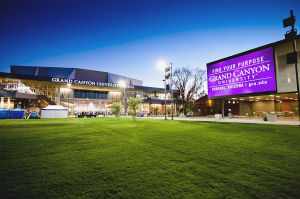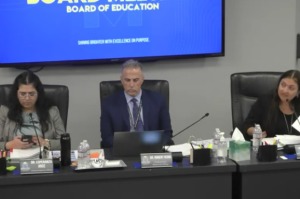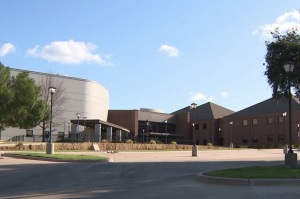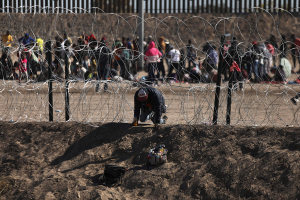Students Go On 30 Hour Famine Strike
High schoool students and their families participated in a 30 Hour Famine to raise awareness of the realities of disease and famine in sub-Saharan Africa.
Over Pentecost weekend, 230 high schoool students and their families participated in a 30 Hour Famine in Dublin, Calif. to raise awareness of the realities of disease and famine in sub-Saharan Africa.
The local event of the national year-round program developed by World Vision, was organized by the DAWN (Developing Awareness of World Need) Project Foundation, a new ministry that seeks to utilize technology and mass media to relieve the suffering in Africa, but also to allow American youths to "make a difference."
"A lot of youth do things just to get noticed; but students from a number of east bay public and private schools want to do something bigger," according to statement released by the DAWN Project.
According to World Vision, this is the 12th year of the program, and over half a million youths participate annually.
"By going 30 hours without food, they received a taste of what so many poverty-stricken children and families feel every day, and they gained a new perspective on a world that is in desperate need of help," stated Charles Hall-Pinner, founder of the DAWN Project Foundation and organizer of the local event.
When asked why he believed students participated, Hall-Pinner said, "Students want to make a difference."
In a similar statement, Jose Zayas, Director of Teen Evangelism of Focus on The Family said that students are very easily motivated for a good cause.
"That's why there is a rise in things like the 30 Hour Famine," Zayas said. "It's not a problem getting students motivated towards a good cause. Youth are very cause driven."
The director says the problem is that students wish to express their faith even if it means suffering or having to endure pain, but the church has not been relevant enough to lead this new generation of idealists who want to make a difference.
"The disconnect is with the way church has been done," Zayas said. "What they've seen is a weakened experience, which hasn't made its way into daily life. They're not interested in this average expression of faith. They want to get in and get dirty and express their faith."
On May 14-15, 30 Hour Famine raised over $20,000, which is to be donated to World Vision for food security, medical supplies, and other necessities.
A similar event took place last February when over 1,000 students from the local high school participated in World Vision’s 30 Hour Famine and raised $55,000.
"Our students want to raise as much money as possible, so as to save as many lives as they can," according to the DAWN Project.
As part of the DAWN Project, students will also be acting locally. The students will be creating a vegetable garden to help feed the 14.2 percent of the people in Alameda County, Calif., who live in poverty. The produce will be donated to the Alameda County Food Bank and their local food pantries.
Believing that students want to make a difference, but feels that no one cares whether they do or not, Hall-Pinner established the DAWN Project Foundation to give youth another outlet to make an impact the world.
"I believe that God cares, and I know that I care and if students can become aware of the problems, use the power of today's technology to work together, then we can extend the love of Christ to those that are in need," he said.
Carolyn Haggard, Director of Young Evangelicals, a ministry with 2 million members, believes that young people across the country are "doing amazing things."
"Young people are engaged in our culture and in our society, and the 'post-modern generation' is a myth," she said.
Davey Corning, a freshman at Valley Christian High School told Hall-Pinner, "When I heard that 29,000 children worldwide, under the age of five, die each day from hunger and preventable causes, I wanted to be involved and to make a difference."
Similarly, Rachel Proefke, a senior from California High School in San Ramon, CA said, "It has broken my heart! I want to serve God by caring for these children in need. I want to travel to Africa, and I know that I will do so in God's perfect timing."
Currently, the DAWN Project plans to create a global network of communities that care by partnering with World Vision, and support Doctors Without Borders and the UN’s World Food Program.
Its strategies, which are media-oriented, include making a video-based, interactive, ‘Global Classroom’ exchange with Africa and the U.S. for grades 6 through 12; staging hunger banquets and famine events; promoting music concerts and events; facilitating international and cross-cultural travel for youth; and holding school assemblies and town hall meetings to save and change lives here in the U.S. as well as internationally.
The DAWN Project is already working with educators and high school students to use the power of computer, satellite and communications technology to create interactive learning environments and a Global Classroom.
Hall-Pinner said, “The technology exists today - as it has at no other time in the history of the world - to put us all on the front lines of the war against hunger, and the battle to end global poverty."




























